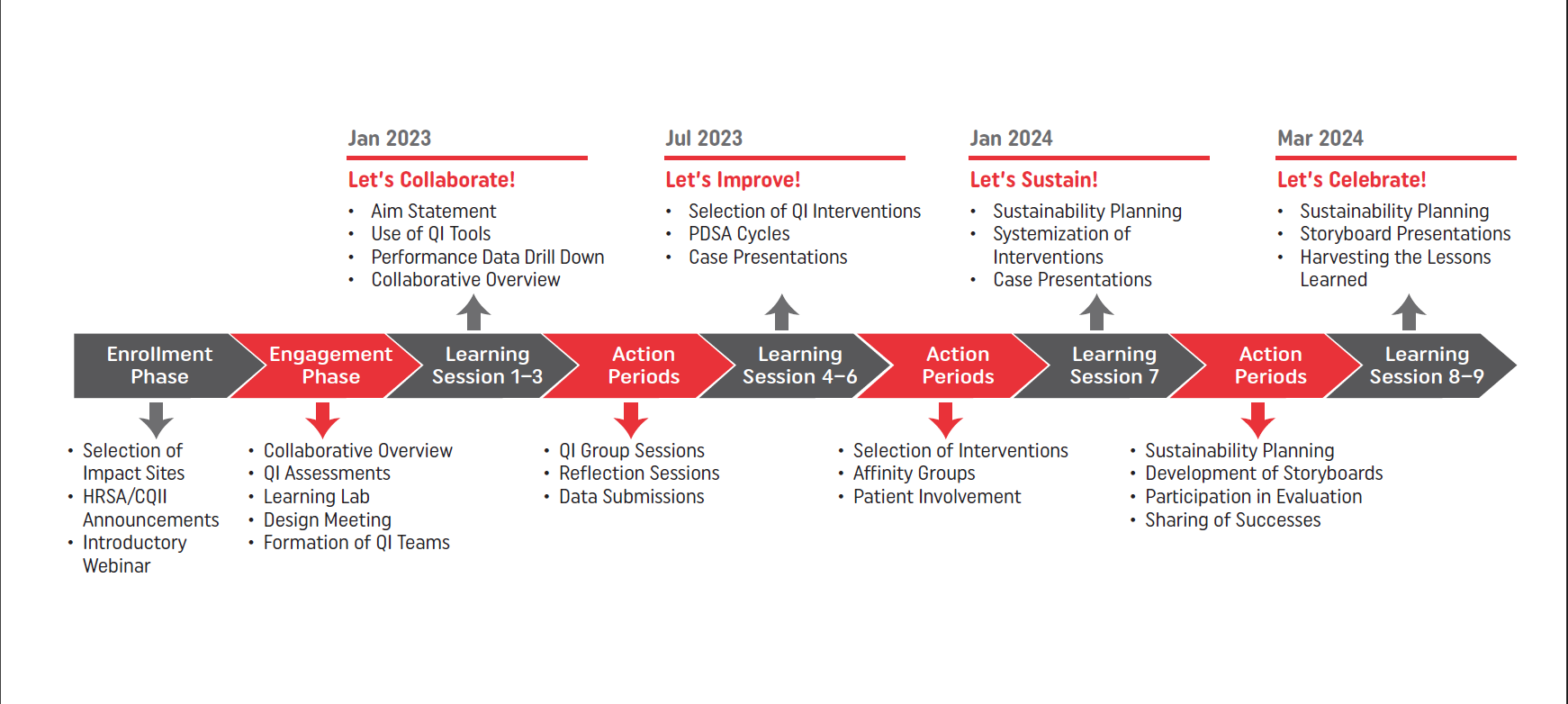Who Can Participate?
Up to 30 Ryan White HIV/AIDS Program-funded recipients or subrecipients are selected to participate based on 2020 RSR data that have the highest potential to make a national difference.
Participation in this national quality improvement initiative is limited to ensure that adequate support is provided for each participating agency while also having a meaningful impact on the national viral suppression rate.
What Collaborative Participants Do?
Participants help create a national community of learners from diverse program types, settings, and geographic locations. Agencies selected to join the Impact Now Collaborative take part in QI Group Sessions with assigned expert QI coach.
- During the Engagement Phase, participants are introduced to the collaborative goals, meet their QI coaches, and are prepared to begin their QI journey. Participating teams draft Aim Statements, assemble a local QI team, and develop a relationship with their assigned QI coaches.
- During the Collaborative, participants join QI Group Sessions to promote peer learning and receive individualized coaching and Reflection Calls to document the improvement journey. Participants also submit performance measures every other month to track their progress and join routine Learning Sessions, during which participants share Case Presentations.
- Key QI resources, tools, and templates are shared to maximize local adaption, i.e., driver diagrams, evidenced-informed interventions, and much more.
How Will Participation Benefit Me?
In addition to improving the lives of HIV patients, participation in the Impact Now Collaborative puts your organization in line with national public health priorities, which emphasize disparity reduction to advance HIV care using quality improvement tools and methodologies.
Participation helps your agency in the following ways:
- Increased capacity to conduct effective QI projects.
- Strengthened clinical quality management (CQM) programs and alignment with external funding expectations.
- Increased access to expert QI Coaches, subject matter experts, and national advocates with lived experiences.
- Routine opportunities for networking and peer exchanges with fellow collaborative participants.
- Access to evidence-informed interventions and proven quality improvement tools.
- Professional growth opportunities as quality improvement leaders and recognition as local quality improvement champions.
